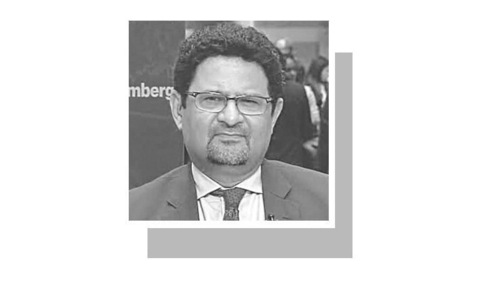SLOWLY but surely the Feb 8 election result is becoming a fait accompli, and the system will move ahead, despite dissatisfaction and protests for some time to come, including many long drawn-out legal battles in the ECP and courts.
And the system is moving ahead as the oath-taking in Punjab and Sindh assemblies demonstrated, with the former also likely to decide who will be the Speaker and deputy Speaker this weekend, before moving on to elect the two chief ministers next week.
Given the numbers in Punjab, Sindh and KP assemblies, it is safe to assume, the usual protests aside, that PML-N, PPP and SIC (read: PTI — not to be confused with SIFC), respectively, ought to see their nominees take the Speaker and deputy Speaker slots as well as the chief minister’s positions in the three provinces.
There may be some obstacles in the path of the PTI nominee for the KP chief minister post, as Ali Amin Gandapur is facing charges for his alleged part in last year’s May 9 incidents, but, hopefully, sanity will prevail and he can do his job side by side with clearing his name in the courts.
We seem determined to do the same thing over and over again.
As things stand, the next two weeks should see all new elected positions being filled from the provinces to the centre, including all the top offices in Islamabad. Then, the real challenge will commence: governance.
Although the politicians — with their ostensible incompetence, greed and mismanagement — have had to mainly shoulder the blame, governance has suffered more on account of the various shocks to the system including truncated tenures of elected governments. Good governance and continuity or security of tenure go hand in hand.
Anyway, linked to that lament is another one. We have so far talked of three provinces and not the fourth, and in many respects the most crucial of them all. The denial of political and economic rights to Balochistan, and anger at this denial, has created a situation resembling a powder keg.
The state’s response, steeped in its unique wisdom, is not to hand over power to the legitimately elected and popular leadership but to experiment with its own surrogates. Disenfranchisement was never going to be a path to stability and it isn’t. But we seem determined to do the same thing over and over again.
This last election was no different. Let us see if by the time the Balochistan Assembly meets, there is some clarity as to who will take up the key positions in the province, and if those who take the reins have what it takes to be inclusive, heal the deeply wounded electorate and restore its faith in the democratic process and in the federation.
After the 18th Amendment and the NFC Award, huge responsibility has fallen on the provinces not just to take charge of their own development but also to take forward the process of devolution to the grassroots level. This is where the political class as a whole seems to have failed as we speak.
It is incumbent on all elected political parties to devolve authority and funds to the local governments where they exist, and call for immediate elections where they don’t, in order to ensure the fruits of development reach the grassroots level.
To be honest, it is not the job of members of parliament to get roads paved, ensure that sewers work and address similar day-to-day issues of the people. That by its very definition is the local government’s domain.
The national and provincial assemblies’ constituencies are way too large for those elected from there to micromanage street-level projects. They should focus on legislation and matters that determine the macro issues and map out the direction in which the country should be headed.
It may be becoming clichéd to refer to the proportion of the youth and young people in the country’s population, but it is true that they now are a very significant number and that they need to see concrete signs of hope, of a better tomorrow.
This hope can only be generated by overhauling the system of education in the country. Whether it is the shameful number of out-of-school children or the quality of education available to those fortunate enough to find themselves in school, there can be no denying the prevalent system has failed to deliver.
In this day and age, without a properly functioning education system that has skilled teachers and the right curriculum, forget about creating worthwhile jobs for the multitudes who join the workforce every year. This risks alienating more and more people, particularly the youth. Perhaps, on Feb 8, many of them voted at the ballot box. They want to be heard.
But in the face of continuing disillusionment, their disappointment and despondency may force them down a different path, further eroding the possibility of desired stability, the prerequisite to economic growth as we try and catch up with our two big neighbours, even if matching their growth rates appears too ambitious at this point.
This is the only way for all political parties to retain and gather support among the newer voters. If the parties fail to earn the trust of the electorate, especially new voters, they won’t get another chance as anarchy and even fascism may beckon.
From the day the chief ministers assume office, they should not let anything distract them from concentrating on working towards visible and easily discernible improvements in the education and healthcare systems, strengthening local bodies and ensuring delivery of the basics to the people.
If not, this stint in office may well be their last.
The writer is a former editor of Dawn.
Published in Dawn, February 25th, 2024














































Dear visitor, the comments section is undergoing an overhaul and will return soon.